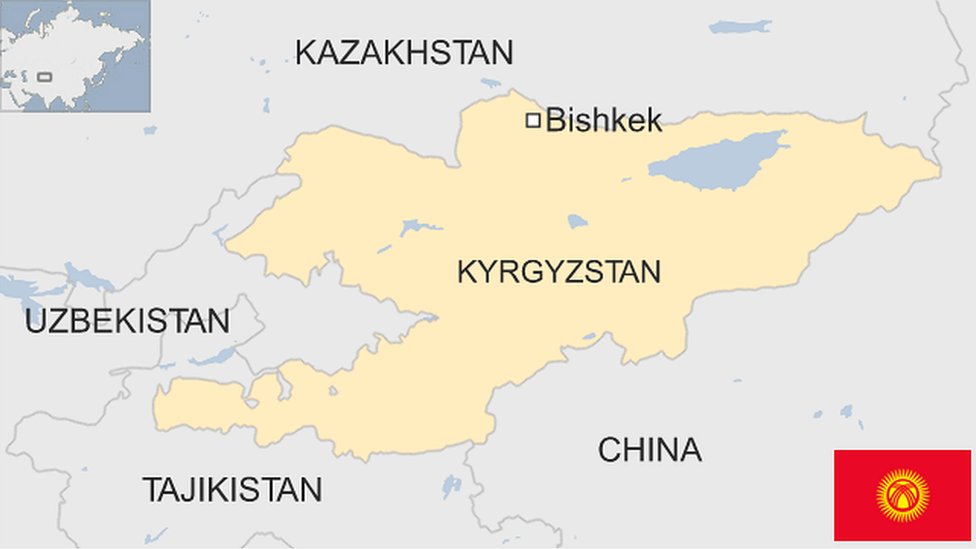Kyrgyzstan election: Sunday's results annulled after mass protests
- Published
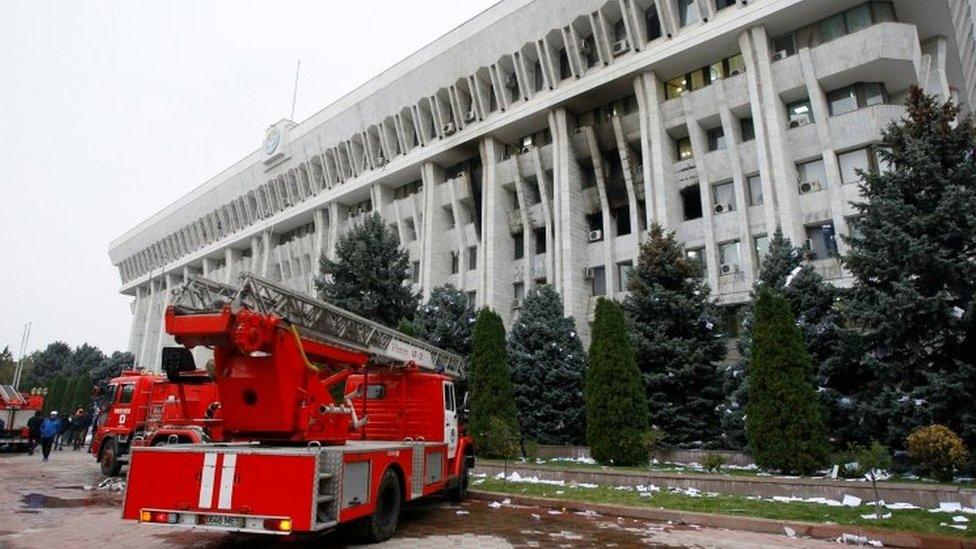
Parts of the parliament building in Bishkek were set alight
The electoral authorities in Kyrgyzstan have annulled the results of parliamentary elections following violent protests.
Demonstrators broke into parliament overnight and clashed with police, demanding a new vote be held.
Hundreds were injured and one person has died, the Health Ministry said.
The move by the electoral commission came soon after President Sooronbai Jeenbekov accused "political forces" of trying to illegally seize power.
Protests broke out after only four political parties out of 16 passed the threshold for entry into parliament in Sunday's election. Three of the four have close ties to President Jeenbekov.
As well as parliament, the protesters stormed other government buildings, freeing a number of high-profile prisoners.
In a video address earlier on Tuesday, President Jeenbekov accused "certain political forces" of using the results of the election as a reason to "violate public order". "They did not obey law-enforcers, beat up medical workers and damaged buildings".
He said he had "so far... taken all the possible measures to prevent an escalation of the situation" and urged opposition parties to "calm their supporters down and take them away from areas of mass gathering".
He also said he proposed a thorough investigation of any electoral violations. A short while later the Central Election Commission said it had "invalidated the election results".
The BBC's Almaz Tchoroev, in Bishkek, said the election will now be rerun but it is not yet clear when or how it will happen.
The president remains in power and has influence but it is unclear how much influence he still has, our correspondent notes.
How did the violence unfold?
Some 5,000 people gathered in the capital Bishkek's Ala-Too square on Monday to demonstrate against the election results.
The protest was largely peaceful until the evening, when a smaller group splintered off and tried to break through the gates into the parliament building.
Thousands of demonstrators took to the streets of the capital Bishkek
The police then used water cannon, stun grenades and tear gas to try and clear the crowds from the main square and surrounding streets.
But demonstrators later flooded back into the central square before storming the parliament building, known as the White House.
Video footage shared on social media showed opposition protesters gaining access to the complex, some by climbing fences and others by pushing open the main gates. Later, smoke could be seen billowing out of the building.
Protesters also released detained opposition figures including Kyrgyzstan's former President Almazbek Atambayev, who was serving an 11-year sentence for corruption.
The health ministry said nearly 700 people had been injured, with nine people in intensive care, and a 19-year-old man was killed.
What do we know about the election?
Out of 16 parties competing for the 120 seats at the Supreme Council, only four parties crossed the 7% barrier for election.
The two parties which got a quarter of the vote each, Birimdik and Mekenim Kyrgyzstan, both have close ties to President Jeenbekov who was elected in 2017.
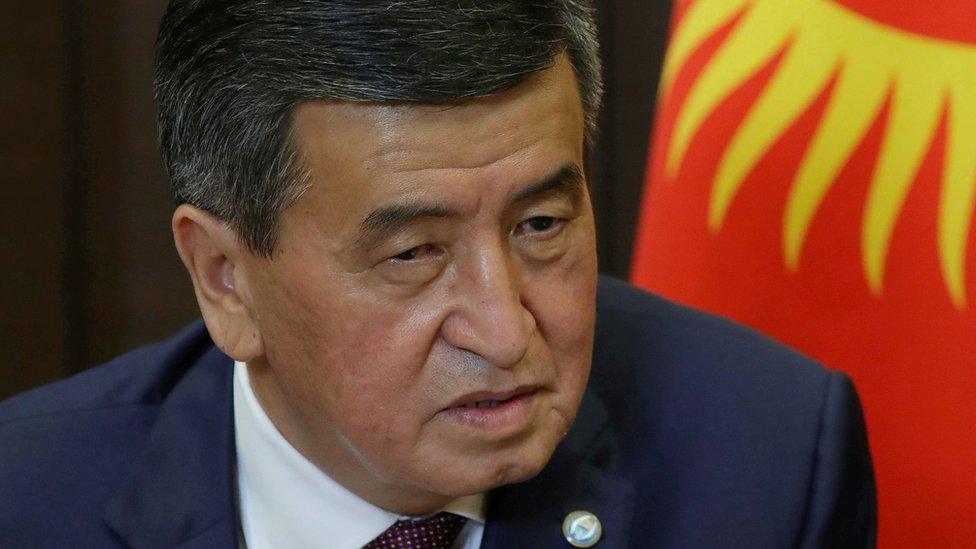
Two parties with close ties to President Sooronbai Jeenbekov each took 25% of the vote
None of the established opposition parties secured a seat at the parliament and on Monday all 12 opposition groups jointly declared they would not recognise the results of the vote.
They accused parties close to the president of vote-buying and voter intimidation - claims international monitors said were "credible" and a cause for "serious concern".
Some observers claimed to have seen, during the first hours of voting, some citizens with marked masks being handed filled-out ballots.
Kyrgyzstan - five quick facts
Second smallest of five Central Asian states, bordered by Kazakhstan, Uzbekistan, Tajikistan and China
Was known as the Kirghiz Soviet Socialist Republic while part of the Soviet Union
Acquired its present name - officially the Kyrgyz Republic - after declaring independence in 1991
Previous uprisings swept President Askar Akayev from power in 2005, and in 2010 ejected President Kurmanbek Bakiyev
Has a reputation for holding semi-free and fair elections in comparison to its neighbours

- Published5 October 2020
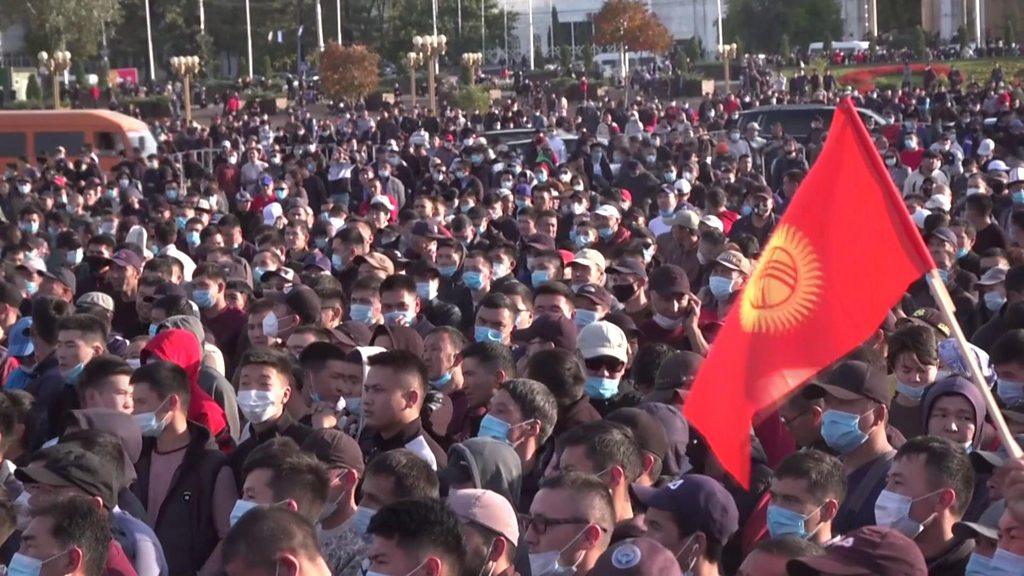
- Published26 May 2020
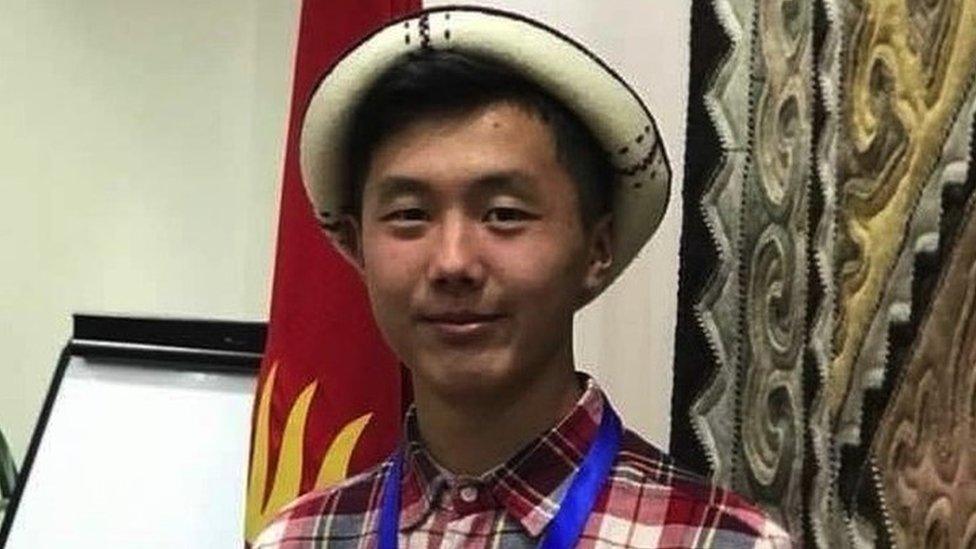
- Published17 December 2019
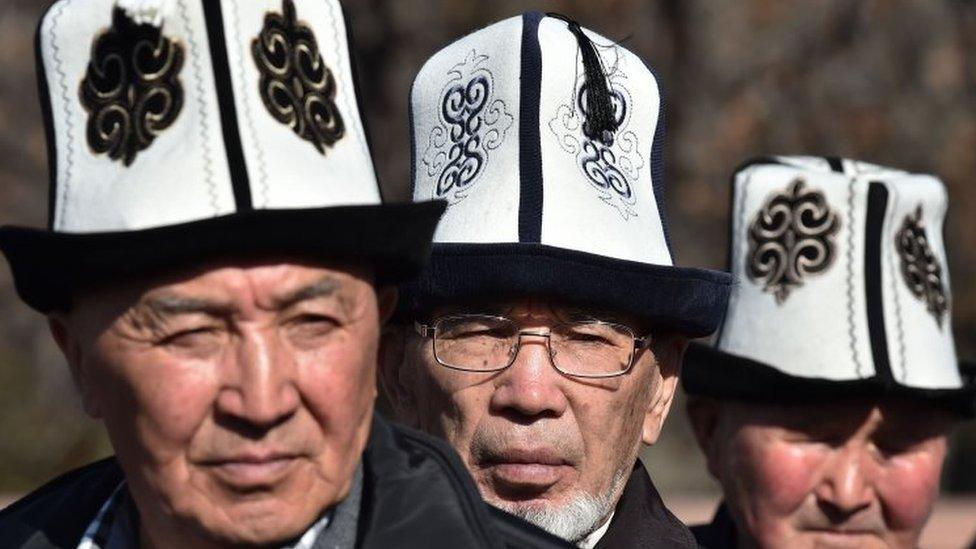
- Published3 December 2019

- Published26 March 2019
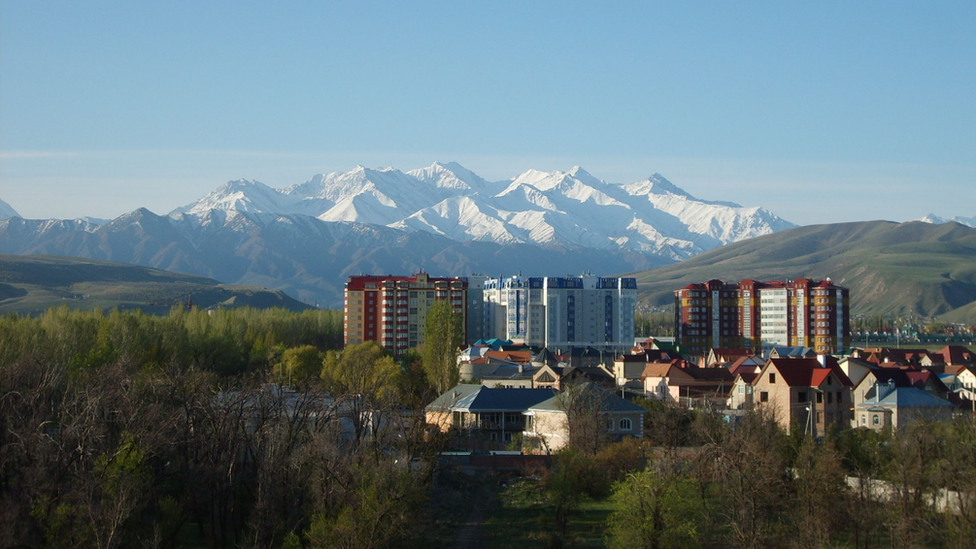
- Published24 March 2023
